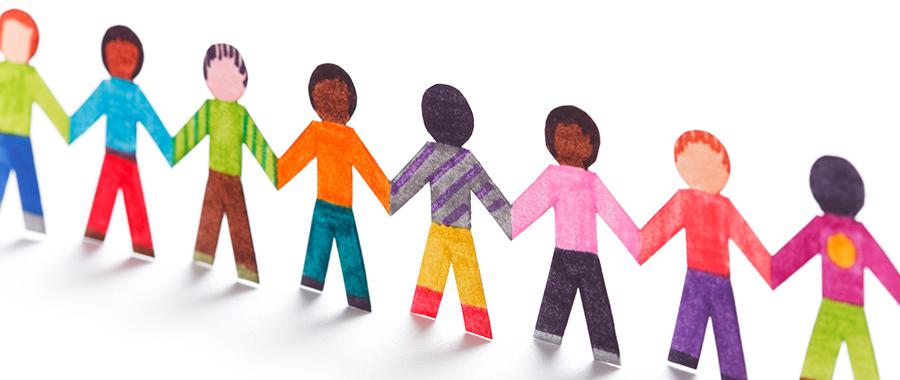The Bahá’í teachings offer a profound framework for creating development projects that yield positive results. The philosophy underlying these teachings emphasizes unity, equity, and the betterment of society through collaborative effort and thorough understanding of human needs. This article explores key principles derived from the Bahá’í Faith that can be instrumental in crafting development initiatives that are not only effective but also transformative.
At the heart of Bahá’í principles lies the idea of oneness—one human family transcending cultural and religious divides. This fundamental belief underpins the development approach, advocating for the involvement of diverse communities in project planning and execution. Truly participatory processes foster a sense of ownership among stakeholders, which is critical for long-term sustainability. Engaging local populations ensures that the projects are attuned to the nuances of their cultural contexts, thus enhancing the likelihood of success.
Moreover, the Bahá’í teachings stress the importance of consultation as a tool for collective decision-making. This practice is not merely procedural; it reflects a deep respect for the insights and experiences that each community member brings. In development projects, consultation serves to democratize the process, empowering individuals and instilling a sense of shared responsibility. It mitigates the risks associated with top-down approaches that often disregard local knowledge, potentially leading to failure. Through authentic dialogue, diverse perspectives can illuminate the complexities surrounding developmental challenges, thus informing more nuanced and effective solutions.
Additionally, the concept of justice occupies a pivotal position within Bahá’í thought. Development projects guided by principles of justice aim to rectify inequalities, empowering marginalized groups and affording them opportunities previously denied. This entails addressing systemic barriers that hinder access to resources and services. By prioritizing equity, development initiatives resonate with the broader goal of uplifting all segments of society, ensuring that no group is left behind. This holistic approach yields not just economic advancement, but also social cohesion, fostering environments where all individuals can flourish.
Integrating spiritual development alongside material progress constitutes another hallmark of the Bahá’í philosophy. Projects should strive to nurture both the physical and the spiritual capacities of individuals. This dual emphasis promotes a balanced perspective; economic growth must be accompanied by ethical considerations and personal development. Programs that encourage learning, leadership skills, and moral education can help cultivate a generation capable of effecting positive change both locally and globally. Thus, the success of development initiatives is intricately linked to the development of the human spirit.
Equally important is the principle of continuous learning and adaptation. In a rapidly changing world, static methodologies can prove detrimental to the effective realization of development goals. By embracing a mindset of learning, project implementers can foster environments where feedback is valued and iterative improvement is encouraged. The Bahá’í teachings advocate for the application of scientific methods and innovative thinking, urging practitioners to evaluate outcomes rigorously and refine strategies accordingly. This adaptability is vital in addressing emergent issues and ensuring that development efforts remain relevant and impactful.
Furthermore, a collaborative approach with various entities—governments, NGOs, private sectors, and the community itself—embodies the Bahá’í teachings on cooperation and unity. Multi-sector partnerships can amplify the scalability and outreach of development projects, leveraging the strengths of each stakeholder. By working together, different organizations can share resources, knowledge, and expertise, thereby enhancing the overall capabilities of development initiatives. Such synergistic alliances can lead to more comprehensive strategies that address complex social challenges effectively.
It is also prudent to consider the ethical dimensions inherent in development work. The Bahá’í teachings assert that moral responsibility should guide all actions. Ensuring transparency and integrity in project execution is paramount for fostering trust and accountability. Development practitioners must be vigilant against unintended consequences and aspire to build frameworks that promote ethical interaction between all parties involved. Upholding integrity not only reinforces the credibility of development projects but also cultivates goodwill within the communities being served.
Additionally, the use of technology plays an increasingly salient role in modern development. Embracing technological advancements can enhance project delivery and widen access to information and resources. However, it is imperative that such technologies are adopted judiciously, with sensitivity to the local context and its implications. The Bahá’í perspective encourages leveraging technology to empower individuals, fostering innovation that is both accessible and sustainable. By equipping communities with the tools to utilize technology effectively, development projects can harness its full potential to drive positive change.
Lastly, the emphasis on sustainability within the Bahá’í teachings underscores the importance of environmental stewardship. Development efforts must prioritize ecological sustainability to ensure that resources are preserved for future generations. An awareness of the interdependence of social and environmental dynamics is intrinsic to Bahá’í thought. Projects should integrate sustainable practices that minimize ecological footprints while simultaneously enhancing community resilience. This holistic outlook nurtures a sense of responsibility toward both humanity and the planet.
In conclusion, creating development projects that produce positive results encompasses a multifaceted approach grounded in the Bahá’í teachings. By embracing principles of oneness, justice, continuous learning, collaboration, ethical integrity, and sustainability, practitioners can forge initiatives that resonate deeply with societal needs and aspirations. As humanity faces an array of complex challenges, the wisdom inherent in these teachings can serve as a guiding light, illuminating pathways toward a more equitable and prosperous world for all.
